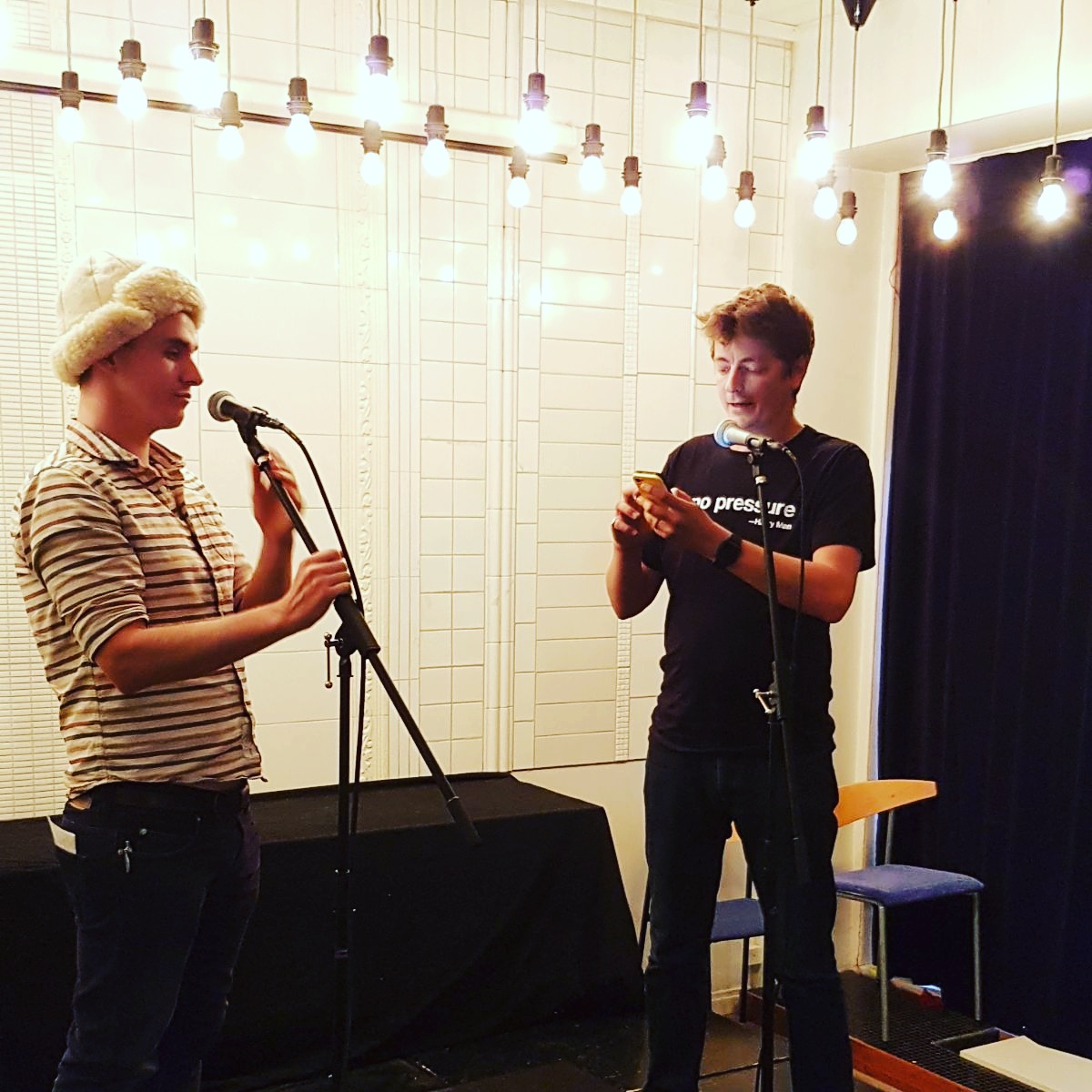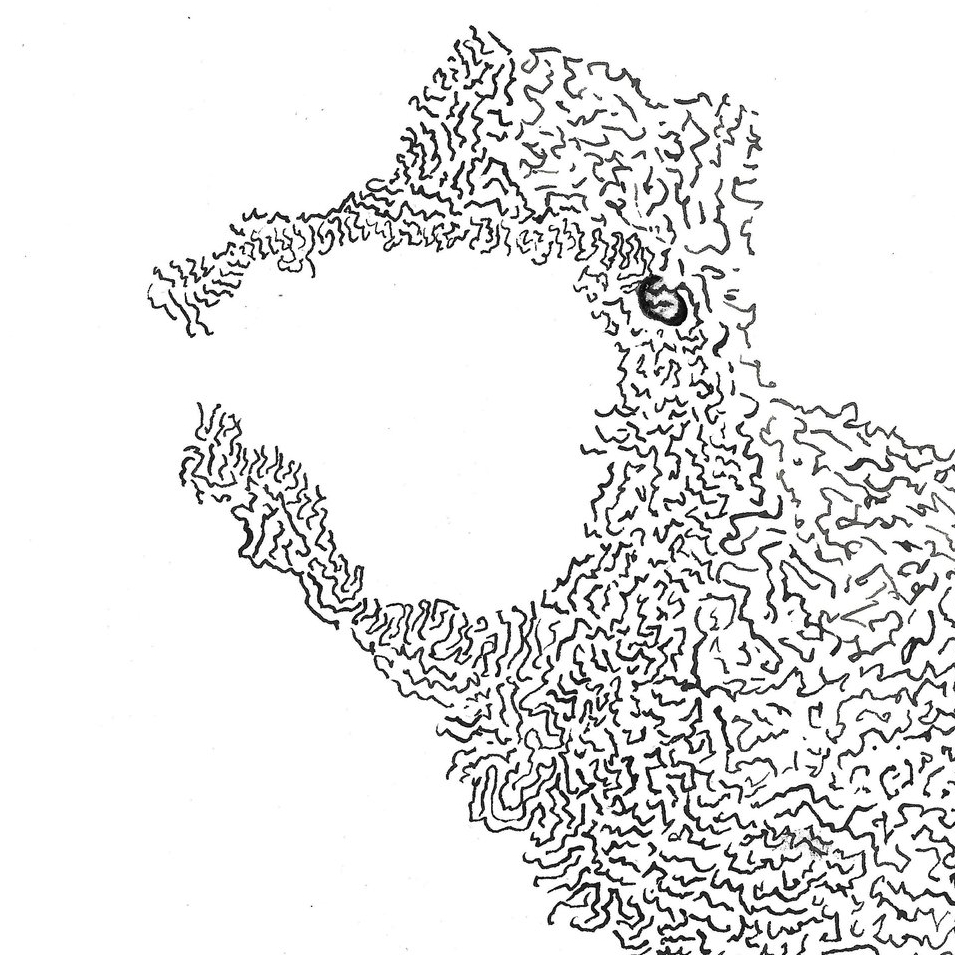The night of my performance, the street of the Literatur Haus was closed and a small stage set up for Jorg, myself and a few others to read. It felt as though no many were there to see the poetry, which I can relate to, but as they milled in their black gowns and drank, which again, is fine, a DJ played us in. They DJ’d into my reading and before my performance I walked around introducing myself to strangers and handing them pieces of paper. They were genuinely contemptuous of me talking to them, perhaps this is why I have this lingering feeling now, writing this. Jorg did a wonderful set, technically brilliant, funny, captivating. Perhaps 30 to 50 people from the 200 or so on the street circled him, distantly, to listen. The rest continued to chat and drink, which again, is fine. I wasn’t really introduced, just took the mic when Jorg finished. I told the audience how about strange the experience is going to festivals like this – that you pass through so invisibly, its ghostly, often, and the travelling, the infrastructure of the amazing invitation, its often for a ten minute reading in a language foreign to the audience. So I wouldn’t do it, wouldn’t pretend they were going to listen. Instead I asked them to write down on those pieces of paper the name of someone they knew who had passed away. Then I said I’d sit in Ark bookshop talk to anyone who wanted to speak to me about that person, and write a poem about them, in memorial, if they wanted to.
So followed an hour I’ll not forget, a deeply sad and authentic series of conversations with very kind people who followed me into the shop, away from the crowd and its disinterest, and in the stories of dead lovers, parents, children, brothers, sisters, cats and poets, I made a corner of the world for myself.
The following day I had the grand pleasure to having lunch with many of the poets, thanks to the hospitality of my old friend Martin Glaz Serup. He is a wonderfully ebullient, funny and sweet hearted man, and this was another lovely hour. My final performance, which was supposed to be a talk, was perhaps even more memorable.




















